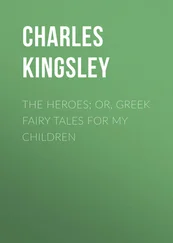Charles Kingsley - The Roman and the Teuton
Здесь есть возможность читать онлайн «Charles Kingsley - The Roman and the Teuton» — ознакомительный отрывок электронной книги совершенно бесплатно, а после прочтения отрывка купить полную версию. В некоторых случаях можно слушать аудио, скачать через торрент в формате fb2 и присутствует краткое содержание. Жанр: foreign_prose, История, foreign_edu, foreign_antique, на английском языке. Описание произведения, (предисловие) а так же отзывы посетителей доступны на портале библиотеки ЛибКат.
- Название:The Roman and the Teuton
- Автор:
- Жанр:
- Год:неизвестен
- ISBN:нет данных
- Рейтинг книги:3 / 5. Голосов: 1
-
Избранное:Добавить в избранное
- Отзывы:
-
Ваша оценка:
- 60
- 1
- 2
- 3
- 4
- 5
The Roman and the Teuton: краткое содержание, описание и аннотация
Предлагаем к чтению аннотацию, описание, краткое содержание или предисловие (зависит от того, что написал сам автор книги «The Roman and the Teuton»). Если вы не нашли необходимую информацию о книге — напишите в комментариях, мы постараемся отыскать её.
The Roman and the Teuton — читать онлайн ознакомительный отрывок
Ниже представлен текст книги, разбитый по страницам. Система сохранения места последней прочитанной страницы, позволяет с удобством читать онлайн бесплатно книгу «The Roman and the Teuton», без необходимости каждый раз заново искать на чём Вы остановились. Поставьте закладку, и сможете в любой момент перейти на страницу, на которой закончили чтение.
Интервал:
Закладка:
‘Who, knowing the judgment of God, that they who do such things are worthy of death, not only do the same, but have pleasure in them that do them.’
Now in contrast to all these abominations, old Salvian sets, boldly and honestly, the superior morality of the barbarians. That, he says, is the cause of their strength and our weakness. We, professing orthodoxy, are profligate hypocrites. They, half heathens, half Arians, are honester men, purer men than we. There is no use, he says, in despising the Goths as heretics, while they are better men than we. They are better Christians than the Romans, because they are better men. They pray to God for success, and trust in him, and we presumptuously trust in ourselves. We swear by Christ: but what do we do but blaspheme him, when we swear ‘Per Christum tollo eum,’ ‘I will make away with him,’ ‘Per Christum hunc jugulo,’ ‘I will cut his throat,’ and then believe ourselves bound to commit the murder which we have vowed? . . . ‘The Saxons,’ he says, ‘are fierce, the Franks faithless, the Gepidæ inhuman, the Huns shameless. But is the Frank’s perfidy as blameable as ours? Is the Alman’s drunkenness, or the Alan’s rapacity, as damnable as a Christian’s? If a Hun or a Gepid deceives you, what wonder? He is utterly ignorant that there is any sin in falsehood. But what of the Christian who does the same? The Barbarians,’ he says, ‘are better men than the Christians. The Goths,’ he says, ‘are perfidious, but chaste. The Alans unchaste, but less perfidious. The Franks are liars, but hospitable; the Saxons ferociously cruel, but venerable for their chastity. The Visigoths who conquered Spain,’ he says, ‘were the most “ignavi” (heavy, I presume he means, and loutish) of all the barbarians: but they were chaste, and therefore they conquered.’
In Africa, if we are to believe Salvian, things stood even worse, at the time of the invasion of the Vandals. In his violent invectives against the Africans, however, allowance must be made. Salvian was a great lover of monks; and the Africans used, he says, to detest them, and mob them wherever they appeared; for which offence, of course, he can find no words too strong. St. Augustine, however, himself a countryman of theirs, who died, happily, just before the storm burst on that hapless land, speaks bitterly of their exceeding profligacy—of which he himself in his wild youth, had had but too sad experience. Salvian’s assertion is, that the Africans were the most profligate of all the Romans; and that while each barbarian tribe had (as we have just seen) some good in them, the Africans had none.
But there were noble souls left among them, lights which shone all the more brightly in the surrounding darkness. In the pages of Victor Vitensis, which tell the sad story of the persecution of the African Catholics by the Arian Vandals, you will find many a moving tale which shews that God had his own, even among those degraded Carthaginians.
The causes of the Arian hatred to the Catholics is very obscure. You will find all that is known in Dean Milman’s History of Latin Christianity. A simple explanation may be found in the fact that the Catholics considered the Arians, and did not conceal their opinion, as all literally and actually doomed to the torments of everlasting fire; and that, as Gibbon puts it, ‘The heroes of the north, who had submitted with some reluctance, to believe that all their ancestors were in hell, were astonished and exasperated to learn, that they themselves had only changed the mode of their eternal condemnation.’ The Teutons were (Salvian himself confesses it) trying to serve God devoutly, in chastity, sobriety, and honesty, according to their light. And they were told by the profligates of Africa, that this and no less, was their doom. It is not to be wondered at, again, if they mistook the Catholic creed for the cause of Catholic immorality. That may account for the Vandal custom of re-baptizing the Catholics. It certainly accounts for the fact (if after all it be a fact) which Victor states, that they tortured the nuns to extort from them shameful confessions against the priests. But the history of the African persecution is the history of all persecutions, as confest again and again by the old fathers, as proved by the analogies of later times. The sins of the Church draw down punishment, by making her enemies confound her doctrine and her practice. But in return, the punishment of the Church purifies her, and brings out her nobleness afresh, as the snake casts his skin in pain, and comes out young and fair once more; and in every dark hour of the Church, there flashes out some bright form of human heroism, to be a beacon and a comfort to all future time. Victor, for instance, tells the story of Dionysia, the beautiful widow whom the Vandals tried to torture into denying the Divinity of our Lord.—How when they saw that she was bolder and fairer than all the other matrons, they seized her, and went to strip her: and she cried to them, ‘Qualiter libet occidite: verecunda tamen membra nolite nudare,’ but in vain. They hung her up by the hands, and scourged her till streams of blood ran down every limb. Her only son, a delicate boy, stood by trembling, knowing that his turn would come next; and she saw it, and called to him in the midst of her shame and agony. ‘He had been baptized into the name of the Blessed Trinity; let him die in that name, and not lose the wedding-garment. Let him fear the pain that never ends, and cling to the life that endures for ever.’ The boy took heart, and when his turn came, died under the torture; and Dionysia took up the little corpse, and buried it in her own house; and worshipped upon her boy’s grave to her dying day.
Yes. God had his own left, even among those fallen Africans of Carthage.
But neither there, nor in Spain, could the Vandals cure the evil. ‘Now-a-days,’ says Salvian, ‘there are no profligates among the Goths, save Romans; none among the Vandals, save Romans. Blush, Roman people, everywhere, blush for your morals. There is hardly a city free from dens of sin, and none at all from impurity, save those which the barbarians have begun to occupy. And do we wonder if we are surpassed in power, by an enemy who surpasses us in decency? It is not the natural strength of their bodies which makes them conquer us. We have been conquered only by the vices of our own morals.’
Yes. Salvian was right. Those last words were no mere outburst of national vanity, content to confess every sin, save that of being cowards. He was right. It was not the mere muscle of the Teuton which enabled him to crush the decrepit and debauched slave-nations, Gaul and Briton, Iberian and African, as the ox crushes the frogs of the marsh. The ‘sera juvenum Venus, ideoque inexhausta pubertas,’ had given him more than his lofty stature, and his mighty limbs. Had he had nought but them, he might have remained to the end a blind Samson, grinding among the slaves in Cæsar’s mill, butchered to make a Roman holiday. But it had given him more, that purity of his; it had given him, as it may give you, gentlemen, a calm and steady brain, and a free and loyal heart; the energy which springs from health; the self-respect which comes from self-restraint; and the spirit which shrinks from neither God nor man, and feels it light to die for wife and child, for people, and for Queen.
PREFACE TO LECTURE III.—ON DR. LATHAM’S ‘GERMANIA.’
If I have followed in these lectures the better known and more widely received etymology of the name Goth, I have done so out of no disrespect to Dr. Latham; but simply because his theory seems to me adhuc sub judice. It is this, as far as I understand it. That ‘Goth’ was not the aboriginal name of the race. That they were probably not so called till they came into the land of the Getæ, about the mouths of the Danube. That the Teutonic name for the Ostrogoths was Grutungs, and that of the Visigoths (which he does not consider to mean West-Goths) Thervings, Thüringer. That on reaching the land of the Getæ they took their name; ‘just as the Kentings of Anglo-Saxon England took name from the Keltic country of Kent;’ and that the names Goth, Gothones, Gothini were originally given to Lithuanians by their Sclavonic neighbours. I merely state the theory, and leave it for the judgment of others.
Читать дальшеИнтервал:
Закладка:
Похожие книги на «The Roman and the Teuton»
Представляем Вашему вниманию похожие книги на «The Roman and the Teuton» списком для выбора. Мы отобрали схожую по названию и смыслу литературу в надежде предоставить читателям больше вариантов отыскать новые, интересные, ещё непрочитанные произведения.
Обсуждение, отзывы о книге «The Roman and the Teuton» и просто собственные мнения читателей. Оставьте ваши комментарии, напишите, что Вы думаете о произведении, его смысле или главных героях. Укажите что конкретно понравилось, а что нет, и почему Вы так считаете.












